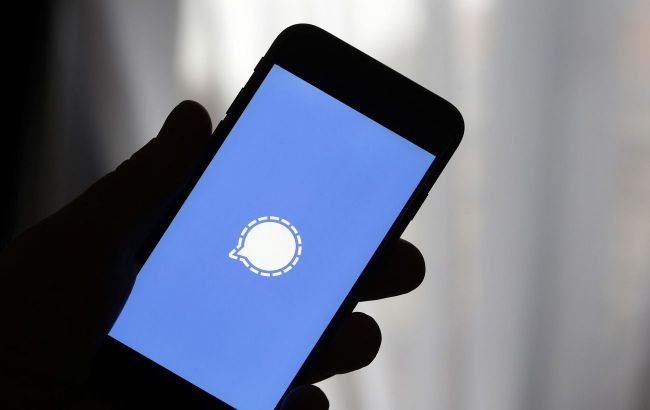Signal's safety advantages over WhatsApp and Telegram: Unique features
 Photo: Why Signal is safer than other messengers (Getty Images)
Photo: Why Signal is safer than other messengers (Getty Images)
Signal, a messenger for both PCs, smartphones, is hailed as a guaranteed private communication service. While it was launched in 2013, it gained popularity only a few years later, according to SourcesQuora, ClearVPN, CNET.
In particular, the Signal app is considered a better and safer choice compared to other messengers such as WhatsApp and Telegram.
What is Signal?
Signal is a program designed for exchanging encrypted messages, presenting itself as a more confidential alternative to WhatsApp, Telegram, Viber, Skype, and iMessage. Notably, Signal is not owned by any corporation - it is developed by a non-profit foundation funded solely through donations. The messenger refrains from collecting user data or displaying advertisements.
A distinctive feature of Signal is its mandatory end-to-end encryption (E2E), ensuring that even Signal's owners cannot read your messages. This stands in contrast to Telegram, where such encryption is only activated in confidential chats upon request.
Why Signal has suddenly become popular
Apps often collect metadata to understand users' interests and provide targeted advertising, a practice employed by WhatsApp. When WhatsApp changed its privacy policy, a portion of its user base switched to Signal.
What Signal offers
- Exchange messages
- Make calls or engage in video calls (up to 8 participants)
- Send voice messages, photos, videos, stickers, and emojis
- Share contacts and locations on a map
- Create group chats (up to 1000 members)
Signal's approach to privacy and security
All messages, group chats, transferred files, photos, voice calls, and video calls on Signal are reliably encrypted, and visible only to the conversation participants. The encryption happens without involving servers, following the end-to-end encryption (E2EE) principle.
Developers of Signal cannot read or transmit your messages, even if they want to. To implement this system, Signal has created its encryption protocol called Signal Protocol.
Signal goes beyond by allowing users to send disappearing photos and videos, as well as blur faces in the sent pictures.
Finally, Signal can verify your contacts to ensure you are communicating with the intended person. This verification involves security codes that can be cross-checked via phone or in person through a QR code. If you switch your SIM card to a new phone, the code changes.
Signal vs. Telegram
While Signal is often compared to Telegram, which also claims incredible privacy and security, Signal outshines its competitors in this domain.
Telegram's E2E encryption can be enabled only in secret chats involving two participants. In regular dialogs, and group chats, this feature is absent, encryption is done on the server. If Telegram's owner needs to know what you are writing, they can do so. In Signal, E2EE is mandatory, even in group chats.
Telegram stores all your conversations on its servers, synchronizing them across all devices for easy searchability. However, this convenience poses a security risk. Signal only stores conversations on your device and does not transfer them anywhere. Additionally, Signal doesn't store user contact lists on its server.
What to know during Signal registration
During registration, a phone number is required, meaning users are not entirely anonymous. The phone number serves as the user's identifier, similar to Telegram. This is done to allow Signal to find who in your contact list is also using Signal.
Users can use Signal without granting access to their phone's contact list. In this case, contacts must be manually added to the messenger by entering their numbers.
Warning! If you lose your phone number, your conversations will be lost too.
Also, we have a guide on how to avoid the deletion of messages and accounts on WhatsApp.

